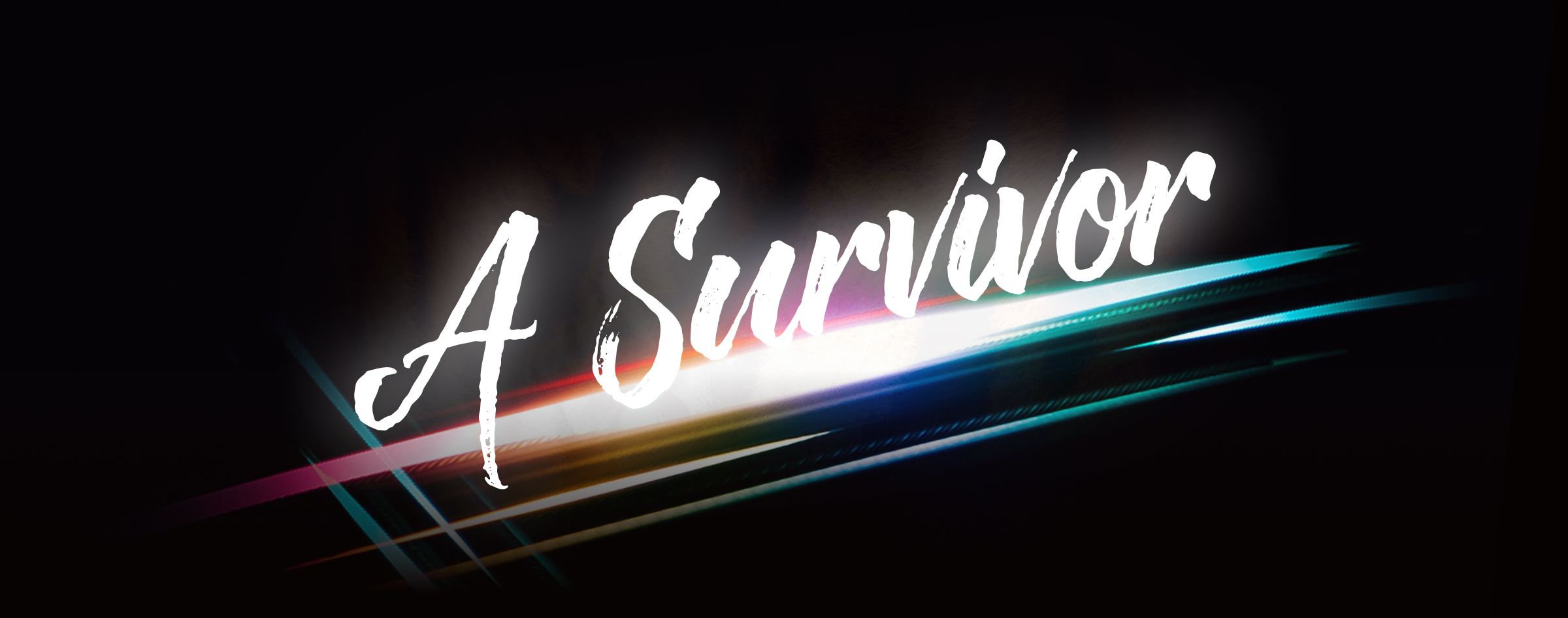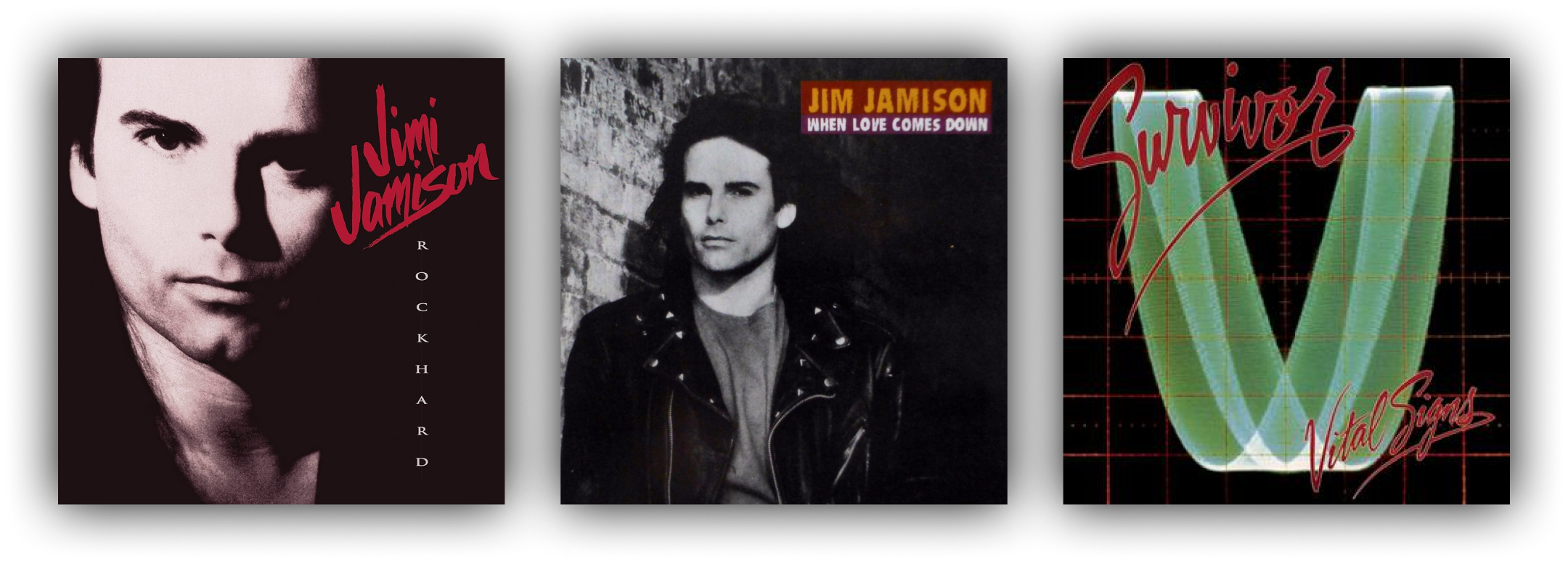
When I first met Elvis, it was at a place called “Katz Drug Store,” Jimi Jamison once recalled. “He was on his motorcycle with a chick on the back… of course. Growing up in Memphis was a musical lesson for life. There was so much talent at that time, as there always has been. Even some of the music business shakers were based there. Elvis, Jerry Lee Lewis, Otis Redding, Stax Records and many other music icons were there and really inspired many young bands, including myself.”
Jimi Jamison earned recognition as the frontman for the rock bands Target, Cobra, and Survivor from 1984 to 1989, performing the songs “Burning Heart” from the film Rocky IV, “The Moment of Truth” from The Karate Kid, along with other top-20 Survivor hits “I Can’t Hold Back,” “High On You,” “The Search Is Over” and “Is This Love.”
He officially rejoined Survivor in 2000, remaining in the group until 2006, only to rejoin again in 2011. Acclaimed for his vocal abilities, Jamison is also known for having co-written and performed the theme song “I’m Always Here” for the 1990s TV series Baywatch.



Jimmy Wayne Jamison was born in rural Durant, Mississippi, but liked to think of himself as a Memphis, Tennessee native, as he and his mother Dorothy moved there when he was one day old. In his teens, growing up with Blues-Rock and Soul music, he taught himself how to play the guitar and piano.
“We were surrounded with rhythm and blues and soul music,” recalled Jamison, “so naturally I was influenced by the sounds of Stax Records and soul music. I even learned to play trumpet, because what’s a soul band without a trumpet and sax?”
The first song Jimi ever performed in front of a crowd was “Day Tripper” by The Beatles, while he was in Sherwood Middle School in the mid-1960s. His old friend, Jack Rowell, after having seen him singing, invited him to play in an R&B band called The Debuts. It was to be Jamison’s first taste of success, and he was only 12 years old at the time.
While students at Messick High School, the band had a hit with their first single, the Wayne Carson-penned “If I Cry” in 1968. It was a song originally intended for fellow Memphis band The Box Tops, but the group discarded the tune before recording it; Box Tops frontman Alex Chilton gave it to The Debuts instead. The band was picked up and signed by Atlantic Records. Soon the teenagers hit the road with the likes of Roy Orbison and Mitch Ryder & the Detroit Wheels, also touring with The Buckinghams. The band broke up in 1969, but Jimi and Rowell continued playing together years later before going their separate ways.
While finishing his college studies at The University of Memphis in Radio/TV and Journalism, Jamison was playing with the bassist Tommy Cathey, working together in a band called Omaha in the early 70s. At some point, they wanted to explore original music and became part of local musician David Beaver’s band, D-Beaver, which released the album Combinations in 1972 for Steve Cropper’s TMI label.
In the ’70s, Jamison joined Target, one of the most successful local bands of the period, releasing two albums on A&M Records before breaking up. In the late ’70s and early ’80s, Jamison made a living as a prolific jingle singer, often spending 12 hours working in the studio on songs that were heard by many more people than most hit records. He also did session work, notably singing backup on ZZ Top’s Memphis-made Eliminator album.



Next, Jamison joined the short-lived Epic Records band Cobra. That gig led directly to his biggest project, replacing David Bickler, the lead vocalist in Survivor, who already had the hit song “Eye of the Tiger” under their belt. His powerful vocal style perfectly fit Survivor’s brash songs. As the group’s guitarist, Jim Peterik said:
“Very few bands can survive a lead singer transplant [but] Jimi had the most magical voice I’d ever heard.”
The first album with the band was 1984’s “Vital Signs.” The first hit single from the album was “I Can’t Hold Back” which would peak at #13 on the Billboard Hot 100 in December of 1984. It would also hold the top spot on the Billboard Mainstream Rock chart for three straight weeks. With Jamison, the band enjoyed several more Top 10 hits, including “High On You,” “The Search Is Over,” and “Burning Heart.” “High On You” would make it into the top 10 peaking at #8 on the Billboard Hot 100 in April of 1985. “The Search Is Over” was the third single from the album and second top 10 hit in a row when it peaked at #4 on the Billboard Hot 100 in July of 1985. The song remained in the top 40 for fourteen weeks and actually topped the Billboard Adult Contemporary chart for four straight weeks as well.




Jamison earned acclaim for his vocal abilities.
“We didn’t even consider it [pitch editing] on him,” sound engineer Terry Manning says. “We didn’t even have it back then. He never needed it. He could hold the pitch. He could sing vibrato when needed. He could sing straight when needed. He could do whatever you needed. Casey Kasem, the big DJ guy, called him ‘The Voice.’ That’s what he named him. He just was the voice.”
Rolling Stone magazine called Jamison “a true Rock and Roll Legend.”
Jamison is an Honorary Member of the Louisiana Music Hall of Fame.

For all his professional success, Jamison was well known for his selfless work on behalf of groups like the Make-a-Wish Foundation and St. Jude’s Children’s Research Hospital. Jack Rowell said, “Jimi was the kind of guy who would do anything for anybody at any time. He did a lot of big benefits, but his favorite place was St. Jude. He was always ready to step up and do the right thing for St. Jude and the children. Him being a daddy and a grandfather himself, his heart was for kids.”
When Jamison died in 2014, the city lost – as local rock historian Ron Hall put it in his book Playing For A Piece of the Door – “one of the strongest, most distinctive voices in the city.”
“It’s strange how things worked out,” Jamison said in 2011. “Before I was ever in a band, I remember lying in bed at night at my Mom’s and secretly listening to the top ten songs of the week and imagining it was me on stage singing all those great songs, with all my classmates standing around cheering. I never really thought it would happen and never planned music as a career. I would be riding in the car with my Mom and stepdad and concentrating on the jingle singers singing the radio station ID’s and thinking, ‘Wow, how do people get to do that and even get paid for it?’ Pretty wild when you think that it all happened just as I imagined it.”

What Others are Saying
I first heard Jimi on “I Can’t Hold Back” or the first song of the “Vital Signs” album and he became “my Elvis Presley” even though he replaced Dave Bickler who jump started my musical journey with “Eye of the Tiger”.
I eventually found his other bands, Cobra and Target, some of his solo albums but I never got to see him live in concert, I almost saw him in Ontario.
WOW!! que bonito leer los comienzos de Jimi Jamison y pensar que fue inspirado por la música con la que creció.Y que exista ese lugar donde lo recuerdan como un grande.
I was a Memphian for over 40 years. Jamie Jamison had the looks, the voice, the talent, presence and humility. What a gem he was.
There are some inaccurate comments in Jimi’s early days while in Messick High School. I was a DJ at the time and also produced records for a few local bands. I met Jimi when he was 16 and loved his talent and offered him an opportunity to record the song If I Cry, which I was given after the Box Tops turned it down. I booked the sessions at Phillips Studio and Knox Phillips engineered. The record was first released on my label, Scudder Records, and then picked up by ATCO (Atlantic Records). I also booked the tour show with Roy Orbison, Mitch Ryder, the Buckinghams, Pacific Gas & Electric, and several other acts. All of this history can be found on Jack Rowell’s FB history.
I absolutely loved Jimi Jamison before I knew his name. I was 18 watching him on MTV and fell instantly. Incredible singer, gorgeous, and yet it took 40+ years later for me to rediscovered him via the Internet. Sadly, only to learn that he had passed in 2014 but see archived interviews showed me that he had been a beautiful human being on the inside where it counts most. He was a doting father, grandfather, philanthropists and still handsome. I always could pick em’. Bless you Jimi Jamison for sharing your inner beauty and voice with the world.